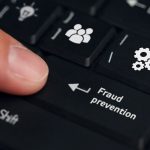The impact of the crimes committed by corporations, business and institutes will affect more than a few people and so regulations are expected to be finely tune. Fortunately, this month we speak with an expert in financial crime, Ellen Zimiles, who reveals laws protecting indirect associated individuals in financial crime. She also touches on changes in legislation affects national and international businesses alike, and of course, the new US President and his impact on white collar crime.
Firstly, can you please update us regarding the latest US and international legislative developments in this legal segment?
Many of the most interesting developments have been outside the legislative sphere:
- The effects the Yates Memo are being felt, and have involved a renewed focus on individual liability for corporate criminality. The memo was issued by Deputy Attorney General Sally Yates in September 2015 and requires the Department of Justice to hold off resolving cases against corporations until they have given all evidence required and all cooperation they can relating to individuals involved.
- In April 2016, the Department of Justice (DOJ) launched a one-year pilot program in The Foreign Corrupt Practices Act (FCPA) Unit, which was designed to motivate companies to voluntarily self-disclose FCP-related misconduct, fully cooperate, and remediate flaws in their controls and compliance programs. Although encouraging and rewarding voluntary disclosure is nothing new, the stated 50% reduction off the minimum amount suggested by the Federal Sentencing Guidelines is to be welcomed. Furthermore, the DOJ made public several declinations under the pilot program in 2016, conditional upon the disgorgement of profits resulting from the companies’ FCPA violations. These declinations provide additional guidance as to the kinds of comprehensive investigation and high levels of remediation that the DOJ and Securities and Exchange Commission (SEC) have come to expect.
- Since November 2015, we have seen four resolutions of corporate bribery offences (two Data Protection Acts (DPA) and two prosecutions) in the UK, which have given a great insight to how the Serious Fraud Office (SFO) and the UK Courts are going to interpret the new rules on DPA and sentencing regimes for white collar crimes. We are now able to see more clearly some of the factors that make a potential UK prosecution a DPA candidate or not: namely a) self-reporting; b) previous and ongoing cooperation with the SFO, and c) remediation, including termination of problematic contracts and termination of implicated staff and associates.
What do these changes mean for businesses and the government? Will they impact any other parties?
There continues to be a focus on aggressive enforcement of financial crime legalisation, with high levels of penalties and disgorgements of profits. As well as the SEC and DOJ, financial regulators in the US, including the Options Clearing Corporation, the Federal Reserve, and the Department of Financial Services are looking more to individual accountability. The focus on individuals has permeated from the US to the UK and Europe: in March 2016, a Senior Managers Regime was introduced in the UK, allowing the regulator to hold senior management more accountable.
What measures exist to detect and prosecute such crimes in the US?
Federal securities laws play a central role in the company’s communications with its shareholders and other investors, requiring complete and fair disclosures of information that would be important to a reasonable investor in making decisions about the company’s securities. The SEC has continued to be aggressive in enforcing the securities laws, and executives are regularly the targets of such actions.
Since The Patriot Act was enacted in 2002, regulators have regularly imposed penalties against financial institutions in connection with alleged violations of Bank Secrecy Act and Anti-Money Laundering regulations. Over this period there has been a 6-fold increase in the filing of Suspicious Activity Reports by financial institutions, indicating the seriousness which most banks are now taking compliance.
Are there measures elsewhere in the world that you would like to see the US government adopt?
The UK currently has one of the most progressive and developed sets of rules to fight financial crime. With a new Criminal Finances Bill set to be enacted in 2017 to prevent the facilitation of tax evasion, and news laws likely in 2018 to require procedures to prevent wider economic crime, this shows no signs of abating. The UK Bribery Act 2010 is tougher than the FCPA – criminalising commercial bribery, as well as the bribery of foreign officials and having no ‘facilitation payments’ exception. The UK introduced the 'Register of People with Significant Control' for UK companies in April 2016. This requires the shareholders of UK companies and other persons who can exercise control over those companies to be identified on a register filed with Companies House. Criminal and terrorist organisations, and corrupt individuals frequently use companies to hide their illicitly-obtained funds, and this provides a powerful means of combatting illicit financial flows, which we will probably start to see permeated throughout the world.
What laws exist to protect indirectly associated individuals in these scenarios (i.e. public privacy and media laws)?
The stakes are high in white collar criminal matters, and senior executives may be personally prosecuted for not only their own actions, but also the actions of other employees, even if they did not know about, or participate in the criminal activity. The ‘corporate veil’ does not always protect.
There are international and domestic regulations and restrictions on data disclosure aimed to protect individuals. But by the same token, these can lead to serious impediments for corporates involved in regulatory and internal investigations. They are a minefield, where specialist advice is vital:
- Local data protection regulations may prevent the cross-border transfer or processing of employees’ electronic and non-electronic records.
- Corporates may be limited in their ability to discipline employees for misconduct in light of local employment laws.
- Data involving overseas governments may be restricted owing to local national security concerns.
- Local managers may face local sanctions if they cooperate with US investigations.
- Corporates may not always be able to disclose the findings to US authorities or comply with US data discovery orders without violating the privacy laws of other jurisdictions.
Putting in place a strong compliance program of well-implemented systems and procedures is usually the best insurance against personal criminal liability.
Do you believe Trump’s Presidency may impact the course of the US’ fight against white collar crime, especially given his appointment of Gary Cohn?
Cohn has struck a moderate tone on issues such as corporate regulation. He has argued for the US to be a “really competitive environment”, but he appeared to take a softer position on Trump’s campaign statements to roll back the Dodd-Frank Act and reinstate new Glass-Seagall rules.
With the new administration, will come new leadership at the regulators. They will determine the focus in the types of cases investigated and the crimes prosecuted. The SEC and the Commodity Futures Trading Commission will both shift slightly their views of what constitutes a violation. I don’t think we will see corporate criminals going unpunished, but we may see a reduced emphasis on enforcement as a primary tool to regulate financial markets.
In addition, what do you make of Senator Jeff Sessions’ stance on white collar crime given his nomination as the next attorney-general?
I think it unlikely that Sessions will dramatically change the direction of white collar criminal enforcement, and based on his public positions in Congress and his previous work as both a federal prosecutor and state Attorney General he will have an aggressive approach to law enforcement. I expect to see more anti-money laundering prosecutions, particularly in cases where terrorism or national security is implicated. We should not expect a weakening of corporate criminal prosecutions.
One of their early tests will be the DOJ lawsuit against Barclays Bank for mortgage securities mis-selling (which other banks settled). By refusing to lower the demand for a large penalty, the DOJ left it to Trump’s new appointees to show how tough they will be with claims of corporate misconduct. It will be interesting to see how hard a line they take.








